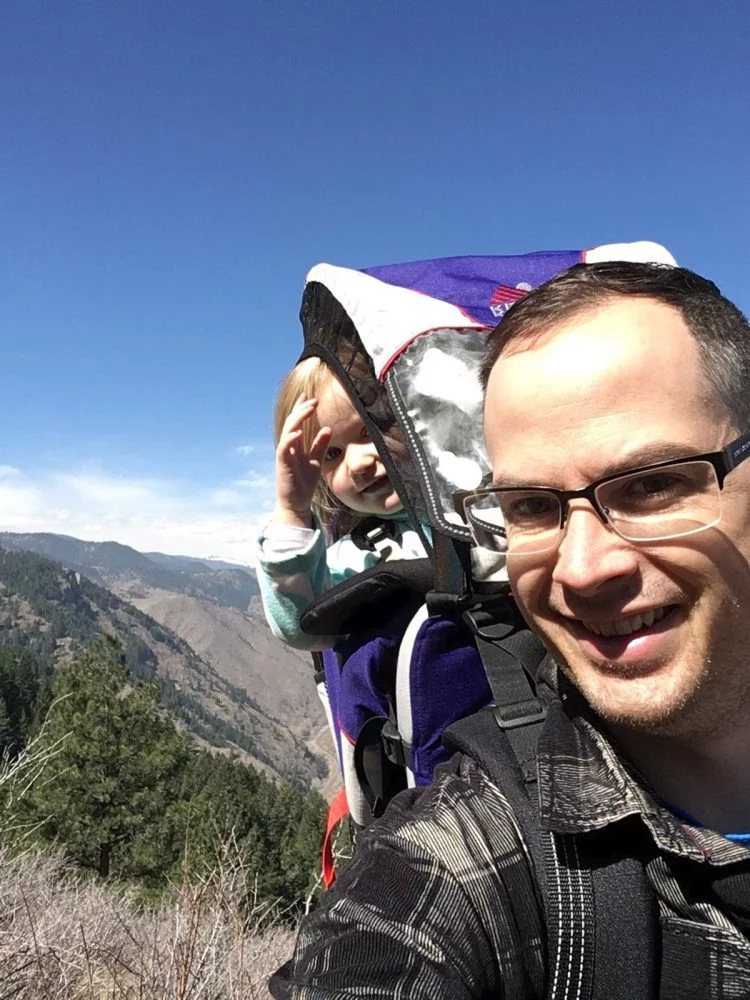
Exhaustion and problems getting enough sleep top the list of concerns that Dr. Michael Dewey and other primary care providers hear from their patients.
On Sunday, Nov. 5, 2023, you get to score an extra hour of sleep when Daylight Saving Time officially ends, and we get to set our clocks back at 2 a.m. Of course, there’s no need to interrupt your night’s sleep to change your clocks.
Instead, use the fall time change and that extra hour of sleep to renew your commitment to getting a better night’s sleep.
A Colorado native and family medicine doctor, Dewey cares for patients at the UCHealth Family Medicine Clinic in Westminster.
Dewey grew up in Conifer, close to the mountains. He loves cycling, snowboarding and hiking. He and his wife, Jessica, have a young son and daughter.

Sleep deprivation can be a challenge, and it’s especially common among parents with young children like the Deweys. But all of us can boost our health by getting a better night’s sleep. Lack of sleep has been linked to diverse health problems, from obesity to Alzheimer’s.
Many patients assume medications are the best path to a good night’s sleep. But, Dewey said behavioral changes can have a far greater impact. For about 90% of patients, good sleep hygiene can make all the difference.
“We all lead very busy lives, and for a lot of people, it’s hard to find time for themselves. We say, ‘I’ll just stay up an extra hour. I’ll get one more thing done.’”
But, says Dewey, “you have to prioritize yourself and take care of yourself.”
A commitment to getting enough sleep is a cornerstone of good health.
Nine times out of 10, Dewey says tinkering with your diet, exercise regimen, and sleep hygiene can fix sleep problems.
Even better, good sleep habits can have lasting impacts, while medications only promote short-term fixes. What’s more, researchers are finding that people get deeper, higher-quality sleep when they rest naturally versus relying on sleep medications.
7 tips for using the fall time change as a springboard for better sleep
So, do yourself a favor and use the fall time change as a springboard for better sleep. Here are Dewey’s top seven tips for getting a better night’s sleep.
- Maintain a regular sleep schedule. Go to bed and get up at about the same time every day, including on weekends.
- Avoid exposure to light-emitting devices, like laptops, phones, TVs and computers for at least 30 minutes before going to sleep.
- Create an atmosphere that promotes sleep in your bedroom. Keep the temperature cool. Keep the room dark and quiet, and make your room a device-free oasis.
- Get regular exercise, but avoid exercising within 2 hours of going to bed.
- Watch your caffeine intake and avoid caffeine after noon.
- Try relaxation techniques such as deep breathing and progressive muscle relaxation.
- Discuss your sleep challenges with your health care provider if you are having regular difficulty getting enough sleep.
The UCHealth Family Medicine Clinic in Westminster provides care for patients of all ages. To reach Dr. Dewey or any of the other providers in Westminster, please call 720-848-9400 or visit the clinic’s website.
